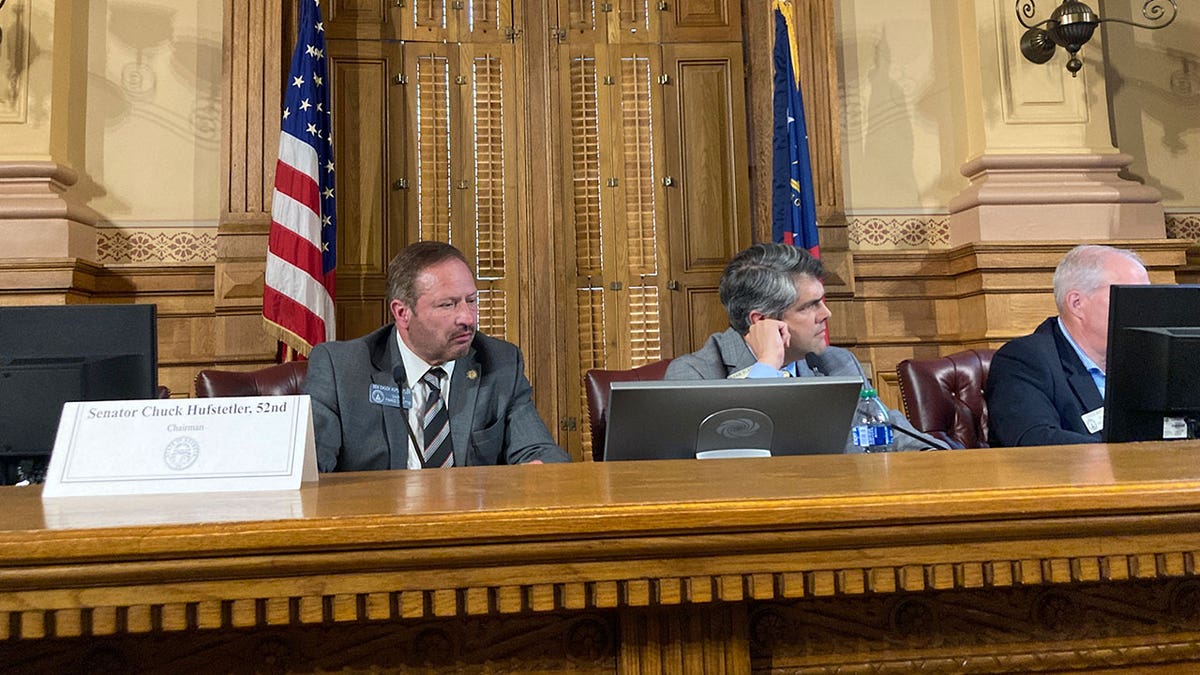Fox News Flash top headlines for June 15
Fox News Flash top headlines are here. Check out what's clicking on Foxnews.com.
Georgia lawmakers began a review of state tax breaks Wednesday, with some leaders hoping to reduce breaks to lower the state’s overall income tax rate, while other officials said business tax breaks are important to recruiting industry.
The Joint Tax Credit Review Panel has been years in the making, pushed for by Senate Finance Committee Chairman Chuck Hufstetler, a Rome Republican who is a sometime-skeptic of tax breaks. The work could lead to legislation next year.
Lt. Gov. Burt Jones, also a Republican, has backed the review with hopes that more limited tax breaks might aid in his goal of lowering or eliminating the state income tax.
IRS WHISTLEBLOWERS CLAIM RETALIATION IN CONNECTION TO HUNTER BIDEN COMPLAINT
Jones described himself as "a big proponent of giving every company and family a tax break" in a Wednesday phone interview.
"In order to do that, you’ve got to always be assessing what you’re doing and make changes when things don’t make a whole lot of sense," Jones said.
But almost every tax break, down to the one that says commercial fishermen don't have to pay sales tax on crab bait, has its defenders. The large capitol hearing room that the review panel met in was filled with dozens of lobbyists, keeping an eye on their clients' preferred incentive.
Testimony showed the wide gap in viewpoints. Jeffrey Dorfman, the state economist, echoed the view of many economists that incentives should be narrowly targeted.
"Tax credits should be used sparingly and for targeted opportunities only," Jeffrey Dorfman, the state economist, told lawmakers. "Once a key industry is attracted, you don't want to subsidize suppliers or follow-on investments, right? If you took a loss upfront, now we need to get those gains later."

Senate Finance Committee Chairman Chuck Hufstetler, left, and House Ways and Means Committee Chairman Shaw Blackmon listen to a presenter during a meeting on tax breaks on Wednesday in Atlanta. (AP Photo/Jeff Amy)
But Andrew Capezutto, the chief administrative officer and general counsel of the Department of Economic Development, which recruits businesses, said the predictability of an incentive system that doesn't change is valuable to businesses and that Georgia's incentives are not particularly rich compared to neighboring states.
"I am constantly told by some of the site selection consultants and companies that Georgia ranks in the middle or the back of the pack, from the sense that we are always getting outbid by other states, neighbor states," Capezutto said.
The effort started with in-depth reviews of some tax breaks. The hardest part of any such review, said Robert Buschman of Georgia State University's Fiscal Research Center, is knowing whether a business would have invested money without the tax goodies.
DEMOCRATS HIRE ARMY OF AGENTS AT IRS TO SQUEEZE HONEST TAXPAYERS FOR GREEN NEW DEAL
"It’s hard to know whether the behaviors you’re subsidizing occur because of the tax incentive or would occur anyway," Buschman said.
Of eight business tax incentives, evaluators judged that a sales tax exemption for businesses to buy computer equipment and the state’s research and development tax credit are the least likely to persuade businesses to make an investment they otherwise would have skipped. Evaluators estimated only 5 cents of every dollar claimed through the research and development tax credit was actually motivated by the tax credit.
But it's not clear that those reports will necessarily dictate the elimination of any incentive.
"I don’t think anybody’s out to end any particular tax credit," said Senate Appropriations Committee Chairman Blake Tillery, a Vidalia Republican.
CLICK HERE TO GET THE FOX NEWS APP
Hufstetler said he wanted more independent evaluation of the numbers that are reported by state agencies, including the Department of Economic Development. "There’s a built-in bias to find good stuff," Hufstetler said of self-reported numbers.
He also said he'd like to see a system where lawmakers had to consider vetted projections before adopting any new incentives. Right now, lawmakers often rely on projections presented by companies who would get the benefit.





